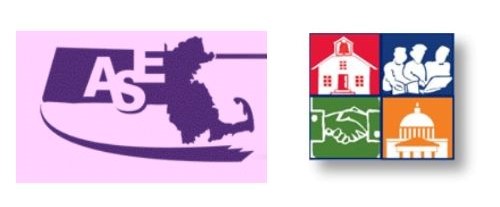Responding to middle and high school students who engage in problematic sexual behavior (PSB)
May 29, 2024 | 12-1:15pm ET | Webinar
Join MASOC and ASE for a new webinar. Expert panelists will discuss how schools, professionals and caregivers can respond to middle and high school students who engage in problematic sexual behavior (PSB).
This webinar is especially relevant for school-based professionals: special education teams, psychologists, social workers and guidance counselors. Please share this information with your colleagues!
This webinar is co-sponsored by MASOC and the Massachusetts Association of Special Educators


What is this for?
As teens are exposed to more and more sexual behaviors online and between peers, they are more likely to make poor choices. The issue that is emerging today is how to respond and ultimately how to prevent PSB in children and teens.
MASOC, a nonprofit with decades of experience working with this population has developed resources for teachers and staff (including a decision-making flowchart and screening tool) to utilize when PSB is observed.
Be the first in your school community to learn from this first-time event provided by MASOC – with experts who understand how to respond to problematic sexual behaviors – offered specifically to ASE members! This content is especially relevant for:
- School special education teams
- School Psychologists
- School Social Workers
- School Guidance Counselors
Please share this information with your colleagues.
What is being offered?
In this 75-minute webinar, you will recive:
- Research and evidence-based information, including a broad-based understanding of current trends in proactive approaches to meeting student needs
- Practical resources, tools and strategies for school teams in addressing the needs of students who are harmed and students who cause sexual harm
- Research-informed school screening tools to evaluate PSB incidents
- Prevention and response approaches that address the mandated reporting requirements
- A flowchart and discussion of best practices in responding to PSB incidents
- Ample time for your questions
All materials are based upon best practices in Massachusetts and around the country. The flowchart will walk you through the process of evaluating the situation, reporting if/when needed, and developing the mitigation plan to ensure safety for everyone involved. The screening tool will help you ask the right questions so that you can make the most effective intervention decisions for the adolescent and your school.
What are the benefits of this approach?
Adolescence is a time for exploration. Research has shown that while in the moment of exploration, teens make mistakes, bad choices and sometimes they may harm others or themselves. Recent research also shows that 70-77% of sexual abuse known to authorities is caused by another child or teen. Schools have the chance to observe behaviors and even intervene before behaviors escalate to a reportable offense. Schools have the opportunity to put mitigation plans into place to ensure that all students are safer. This webinar offers concrete tools and resources for you and your school to use to address these PSB when they come to light.
We need you.
This work is at the cutting edge of preventing sexual misconduct in the schools. Your insights as a school professional are essential. Your input and questions during the discussion will help us to create effective, easy to use resources.
We hope you will join us in this important step to create a safe and healthy learning environment for all students.
Presenters
Kevin Creeden, MA, LMHC is the Director of Assessment and Research at the Whitney Academy in East Freetown, MA. He has over 40 years of clinical experience treating children, adolescents, and their families working extensively with sexually and physically aggressive youth. Over the past 30 years, his primary focus has been on issues of trauma and attachment difficulties, especially regarding the impact of trauma on behavior. Kevin has authored several articles and book chapters on the neuro-developmental impact of trauma on sexual behavior problems and harmful sexual behavior. He was also a contributing writer to the ATSA Adolescent Treatment Guidelines and the ATSA Child and Adolescent Committee’s paper on Children with Sexual Behavior Problems 2nd Edition.
Mr. Creeden has served as the board Chair of MASOC (Massachusetts Society for a World Free of Sexual Harm by Youth), the president of the Massachusetts chapter of the American Professional Society on the Abuse of Children (APSAC), a Teaching Fellow at Boston College, an Instructor in Psychology at the Harvard Medical School, and a guest faculty at the Boston University School of Social Work and the Simmons School of Social Work. Mr. Creeden trains and consults nationally and internationally to youth service, community mental health, and forensic service programs.
Jean Lindquist Grady, PsyD has over 25 years of experience in child welfare, mental health counseling, neurobiology and education, and is currently an Educational Psychologist within the Worcester Public Schools and co-chair of the MASOC board. Dr. Lindquist Grady evaluates youth who engage in problematic sexual behaviors and/or aggressive/threatening behaviors, as well as evaluates students, and provides consultation to multiple school districts within Massachusetts. She is an adjunct professor at Assumption University teaching graduate level assessment courses within the School Counseling and Education departments. Dr. Lindquist Grady has provided professional development and training to school districts, community-based agencies, special education administrators, and mental health professionals on a multitude of topics.
Throughout her career, Dr. Lindquist Grady has promoted best practices in trauma informed, community focused, student centered, strength based, equitable, and culturally conscious work with a commitment to continuous learning.
Learning Opportunities
MASOC offers numerous training opportunities through conferences, webinars and a lunch-and-learn series. View all opportunities.